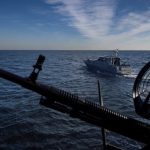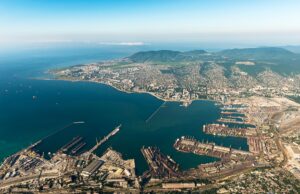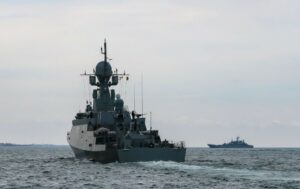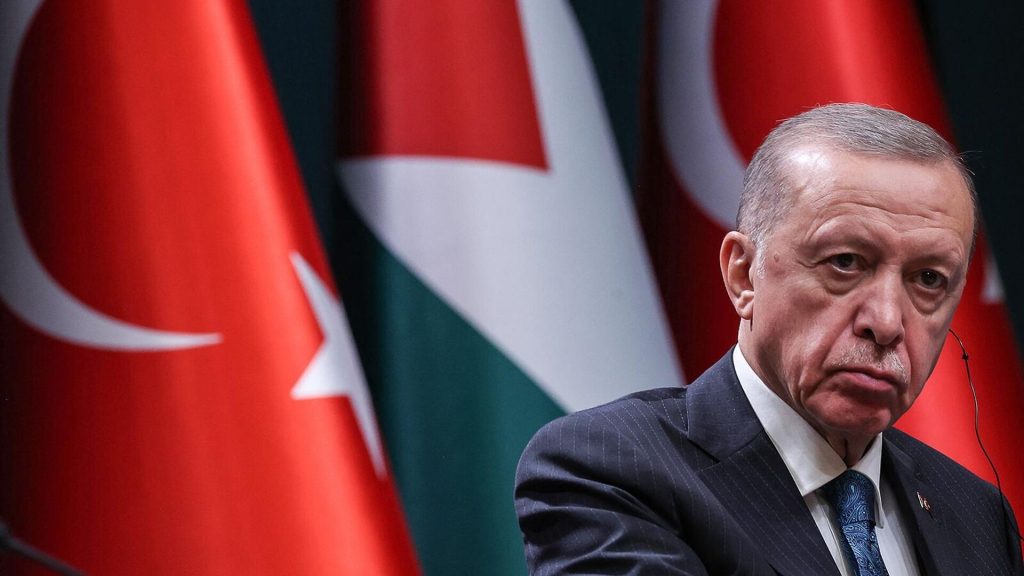Black Sea truce: How Ukraine, the US and Russia are negotiating a ceasefire (updated)
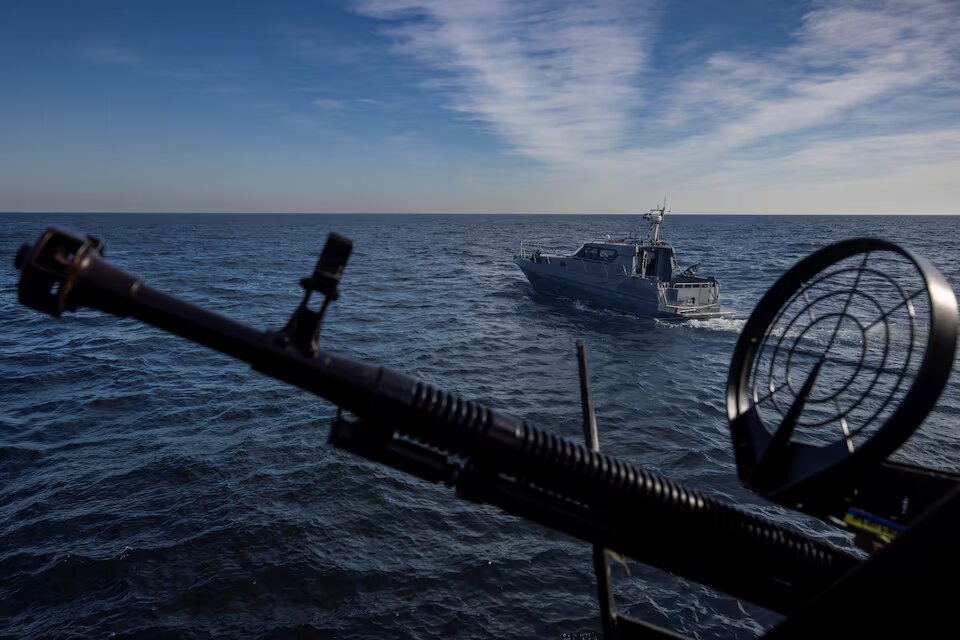
In early March, the US initiated a series of negotiations between Ukraine and Russia aimed at a ceasefire in the Black Sea and reducing the threat of attacks on energy infrastructure.
Despite the alleged agreements on safe navigation and a moratorium on strikes, Russia continues to make one demand after another, sabotaging the process that involves an unconditional cessation of shelling. Read how the talks are developing in our timeline.
On Monday, March 24, negotiations between the US and Russia were held in Riyadh (Saudi Arabia). They discussed, in particular, the issue of a ceasefire in the Black Sea. After the talks, the parties were supposed to issue a joint statement, but this did not happen. The Kremlin said that the content of the talks in Riyadh would not be made public, since these were “technical consultations.”
On March 25, the United States concluded the second round of negotiations with Ukraine, which followed a 12-hour meeting between the United States and the Russian delegation. That evening, the White House announced that Saudi Arabia had agreed to ensure safe navigation in the Black Sea and to “develop a mechanism” to prohibit attacks on energy facilities.
According to Ukrainian Defense Minister Rustem Umerov, the bilateral technical consultations in Riyadh focused, in particular, on the security of energy and critical infrastructure and safe navigation in the Black Sea.
The key results of the talks (specifically in the area of maritime security) published by the minister:
— all parties agreed to ensure safe navigation, cease the use of force, and prevent the use of commercial vessels for military purposes in the Black Sea;
— all parties welcome the involvement of third countries to ensure support for the implementation of the energy and maritime agreements.
Umerov stressed that the movement of Russia’s military vessels beyond the Eastern Black Sea would be considered a “violation of the spirit of this agreement” and would be seen as a violation of obligations to ensure freedom of navigation in the Black Sea and a threat to Ukraine’s national security. In this case, Ukraine would have the full right to exercise the right to self-defense.
The minister added that for the effective implementation of the agreements, additional technical consultations should be held as soon as possible to agree on all the details.
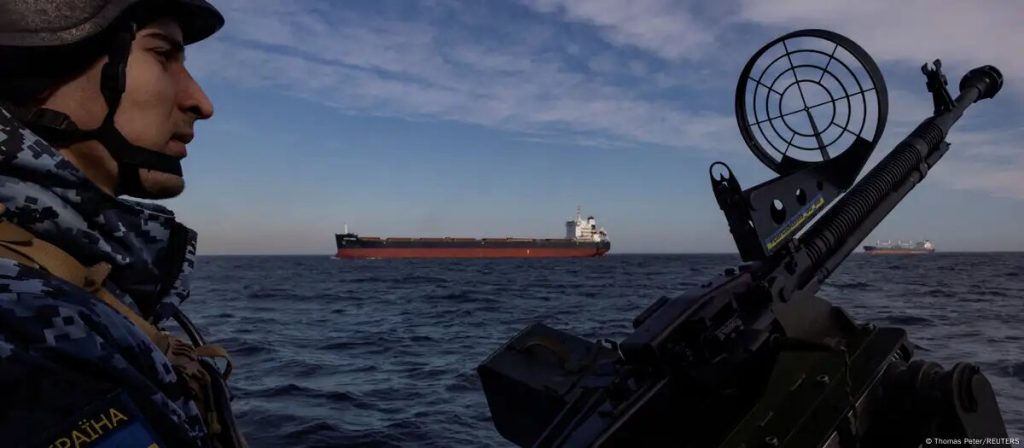
Meanwhile, Russia has said it is discussing with the US the renewal of the “grain agreement”.
The Institute for the Study of War (ISW) has drawn attention to the fact that US reports on their bilateral meetings in Saudi Arabia and a statement by Rustem Umerov state that the US, Ukraine and Russia “agreed to ensure safe navigation, exclude the use of force and prevent the use of commercial vessels for military purposes in the Black Sea”. But the Kremlin report on the US-Russian negotiations states that the US and Russia agreed to such measures within the framework of the “Black Sea Initiative”, with the need for “appropriate control measures through inspection of such vessels”.
According to ISW, all texts of the bilateral meetings from March 23 to 25 stated that the parties “welcome the good offices of third countries to support the implementation of energy and maritime agreements” and that all parties “will continue to work towards achieving a strong and lasting peace”.
In particular, the US suggested that Saudi Arabia monitor compliance with the ceasefire at sea.
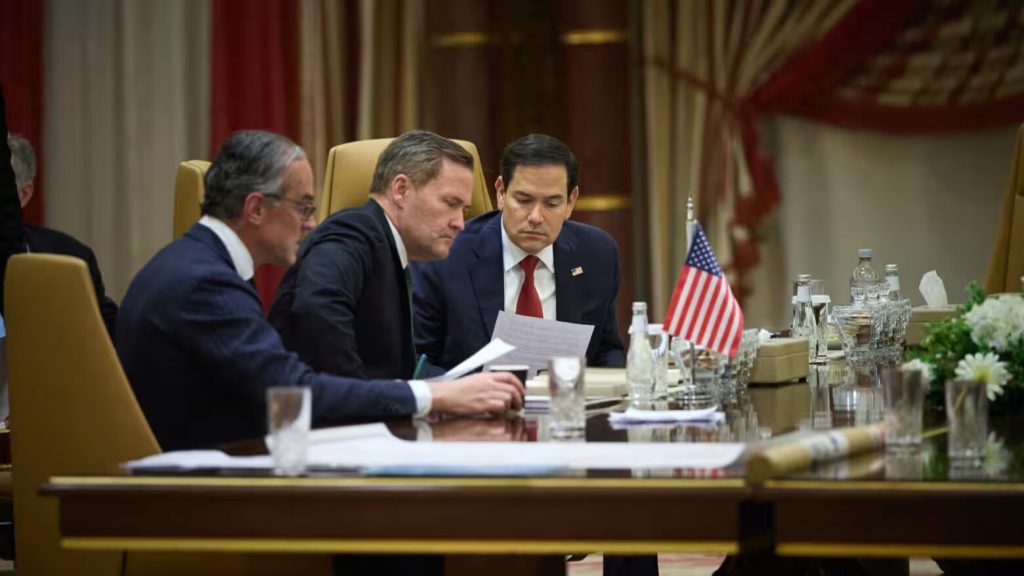
The Kremlin has said it will not implement the agreed ceasefire in the Black Sea until the US meets a number of conditions. These include:
• lifting sanctions on the Russian state agricultural bank Rosselkhozbank and other unspecified financial institutions involved in international trade in food and fertilizers;
• restoring the connection of “Rosselkhozbank” and other financial institutions to SWIFT and lifting restrictions on trade finance transactions;
• lifting sanctions restricting companies that produce and export food and fertilizers and their insurance companies;
• lifting sanctions on servicing ships in ports and sanctions against vessels flying the Russian flag that trade in food and fertilizers;
• lifting restrictions on the supply of agricultural machinery and other tools used in the production of food and fertilizers to Russia.
Interestingly, on March 26, Bloomberg published an article about Russia using fertilizer manufacturers to purchase components for explosives to circumvent sanctions. So, if Russia is given a “free hand” in the fertilizer trade, it is quite possible that the aggressor country will use this, including to increase the supply of chemicals for military purposes, but under the guise of humanitarian ones.
The White House and Kremlin reports on the US-Russian meetings noted that “the US will help restore Russia’s access to the world market for agricultural and fertilizer exports, reduce the cost of maritime insurance, and expand access to ports and payment systems for such operations.” But the US report, in particular, did not clearly state that Russia’s acceptance and compliance with the ceasefire in the Black Sea would depend on the easing of previous US sanctions.
The United States is likely to demand cooperation with the EU to lift some sanctions and restrictions on Russian agricultural, financial, and trade organizations in order to restore Russia’s connection to international agricultural and fertilizer markets.
On March 26, during a press conference in Paris, Ukrainian President Volodymyr Zelenskyy said that Russia is trying to impose additional conditions on the Black Sea ceasefire while Ukraine is ready for a ceasefire without any preconditions.

Meanwhile, US Secretary of State Marco Rubio said that the United States will assess Russia’s demands after it “in principle” agrees to a ceasefire in the Black Sea.
According to Serhiy Bratchuk, spokesman for the Ukrainian Volunteer Army “South,” Russia wants to return its fleet to Crimea under the guise of a Black Sea truce.
On March 27 Ukrainian Ministry of Foreign Affairs issued a statement The Foreign Ministry denied Moscow’s statements about returning to the Black Sea Grain Initiative and emphasized that the ceasefire does not apply to Russian warships.
Bulgarian Prime Minister Rosen Zhelyazkov also stated that Bulgaria proposes to create a multinational headquarters to coordinate monitoring of the implementation of the ceasefire agreements in the Black Sea.
On March 28, Turkish President Recep Tayyip Erdogan, following a telephone conversation with Vladimir Putin, stated that Turkey is making its contribution to “preventing the Black Sea from turning into a conflict zone.”
Erdogan noted that the steps that need to be taken to ensure the safety of commercial shipping in the Black Sea will contribute to the peace process.
